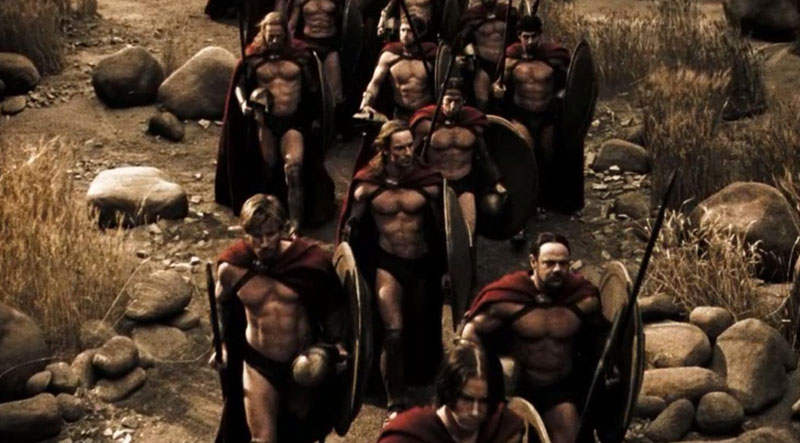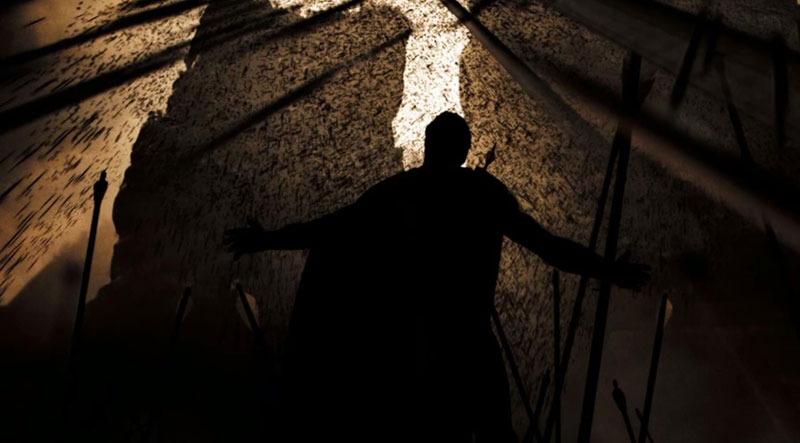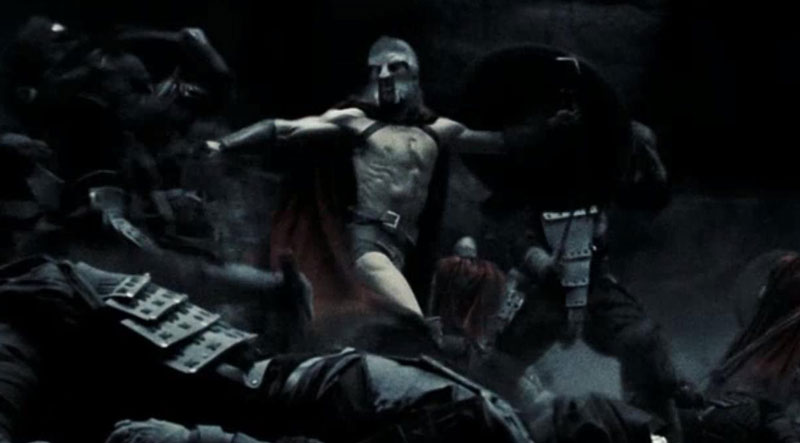
|

|

|

|

|

|

|

|

|

|

|

|

The Sacred Band
“Gorgidas, according to some, first formed the Sacred Band of three hundred chosen men, to whom, as being a guard for the citadel, the State [they were encamped in the Kadmeia] allowed provision, and all things necessary for exercise: and hence they were called the city band, as citadels of old were usually called cities."
Plutarch, "Life of Pelopidas" (including discussion of Sacred Band)
Regarding this text, it can be only said that it, actually, refer not to Sparta, but to Boeotia of the epoch of proscription of a Spartan garrison from the Thebes and the end of Spartan oligarchy that took place in 378 BC as a result of coup d'etat .
Most likely it was recreation of former Band of the Thebes, which fought on the Persians' side in the Battle of Plataea; no one of its fighters survived... This recreated Band fought against the Spartans at the Battle of Leuctra in 371 BC, and was completely wiped out by the Macedonians in 338 BC at the Battle of Chaeronea.
“It is said that the Band remained undefeated until the Battle of Chaeronea, and that when Philip, surveying the casualties after the battle, stood at that place where the 300 chanced to lie dead, men who had faced the Macedonian long spears and were now a jumble of bodies and armor, he was struck with admiration. And when he learned that this was the band of lovers and beloveds, he wept and exclaimed, "May utter destruction fall upon those who suppose these men did or suffered anything disgraceful!"
Plutarch, "Life of Pelopidas" (including discussion of Sacred Band)
This text is historically well-grounded as Philip II after winning the battle was extremely merciful to captivated Athenians, whom he released without taking a ransom and also refused to destroy the Athens, but he was showing ill will towards the Thebans who betrayed him and of whom he took the ransom even for the right to bury the fallen...
Never been to Greece poet Athenaeus, who lived in the end of the 2nd and beginning of the 3rd century AD in Egypt and later in Rome, wrote the following lines in imitation to Plato and his "Feast":
"The Spartans make a preliminary sacrifice to Eros before their troops line up for battle, on the ground that safety and victory depend on the men in the ranks being friends. The Thebans' so-called Sacred Band was composed of adult lovers and their boyfriends, as a way of emphasizing their Eros for the god, since they preferred a glorious death to shameful and widely-criticized lifestyle."
What is really explained the adherence of Kings to accept in King's Sacred Band not relatives, but friends? There is current a saying of Pammenes, that Homer's Nestor is not a good general when he bids the Greeks assemble by their tribes and clans:
"That tribe to tribe, and clan to clan give aid,"
whereas he ought to have placed side by side the warriors who established bond of friendship. "For men care little in time of danger for men of the same tribe or clan, whereas the bond of affection is one that cannot be broken, as men will stand fast in battle from the strength of their affection for others, and from feeling shame at showing themselves cowards before them. Nor is this to be wondered at, seeing that men stand more in awe of the objects of their love when they are absent than they do of others when present, as was the case with that man who begged and entreated one of the enemy to stab him in the breast as he lay wounded, "in order," said he, "that my friend may not see me lying dead with a wound in the back, and be ashamed of me."
There's also a version that the Bands of 300 got their name of the Sacred because its fighters were believed to be "divinely inspired friends"...

Let us leave now those who prefer speculations framed the Spartans up by Athenian social order to wittingly boring truth and return to Leonidas and his Sacred 300…
And they said to him: Too few men had prepared you, the King, for the Great Battle...
And said he: Too many... Today I will feed Death with them to satiety...
The Band of 300, which was food for the Reaper, was 80 per cent of personal Leonidas' bodyguards. Each of them had a wife and, at least, one child, who must surely be a boy, as "precious man's seed must the shoots leave for they can rise further and there can be something to sow the field with."

These were people united with ties of mutual sympathy and friendship, ready to cover the fellow Spartan's back with their bodies, if this one happen to left it without protection. It was forbidden to kinsmen to participate in the battle, it was also undesirably for the relatives through the wives… If they were recruited, The Compositors had to previously find out: there were the conflicts between the candidates concerning division of lands and other property as well as personal dislike for one reason or another, because the mess and heat of combat were too tempting option for those who were eager to settle scores with their "neighbors" for past offences.
"As 300 ate their last meal, Leonidas is reputed to have said: 'Eat hearty, lads, for today we dine in Hades.'"
No one doubted the King's words, but the meal was consumed with usual appetite for they intended to make the Persians pay dearly for their death.
Xerxes held back his attack until mid-morning. When the Spartans saw his troops entered the pass, they no longer tried to defend the wall but advanced along the pass to its widest point and here drew up in normal phalanx with the lighter-armed helots covering the wings. Here they fought with reckless frenzy.
The Persians, we are told, had to be driven on with scourges and clambered over the piles of their dead to get at the Spartans. Soon most of the spears were broken and the hoplites drew their swords and moved in closer, hacking at the sea of faces before them.
Here Leonidas fell and the battle raged over his corpse as the Spartans and the Persians struggled for possession of the body.

Four times the Persians captured it and four times the Spartans dragged it back again. So the struggle persisted until lookouts brought the news that the Immortals had reached the bottom of the path. The Spartans closed ranks and retreated towards the wall.
They passed through the gates and withdrew to a small hillock rising about 15m above the marshy ground where they formed a circle and prepared to die.
The Persians swarmed through the wall and tried to clamber up the hillside but they were driven back. At first the Spartans defended themselves with their swords, but when these vroke they attacked their assailants with their fists and teeth. They fought on until they were overwhelmed by the hail of missiles.

By midday all was still.
Herodotus records a story of two Spartans who at the time of the last stand were lying ill with ophthalmia at Alpeni. The first, named Eurytus, on learning that the Persians had crossed the mountains, called for his armour and, though he could not see, ordered his helot to lead him into the thick of the battle. The second, Aristodemus, lost his courage and slipped away with the other escaping allies. When he returned to Sparta he was disgraced and was only able to redeem himself by his extraordinary courage at the battle of Plataea the following year.
"Ephialtes, live forever..."
As for Ephialtes, a price was put on his head. He fled to Thessaly, fearing that the Spartans would hunt him down. Years later he returned to his home at Anticyra, where he was killed by a man who had a private grudge against him but who nevertheless claimed the reward."
P. Connolly, Greece and Rome at War (Prentice-Hall, 1981)

Do not be ashamed to mourn over the characters in the tenth and hundredth time, reading books and watching the screen, because crying is not always bad...
to be continued...

